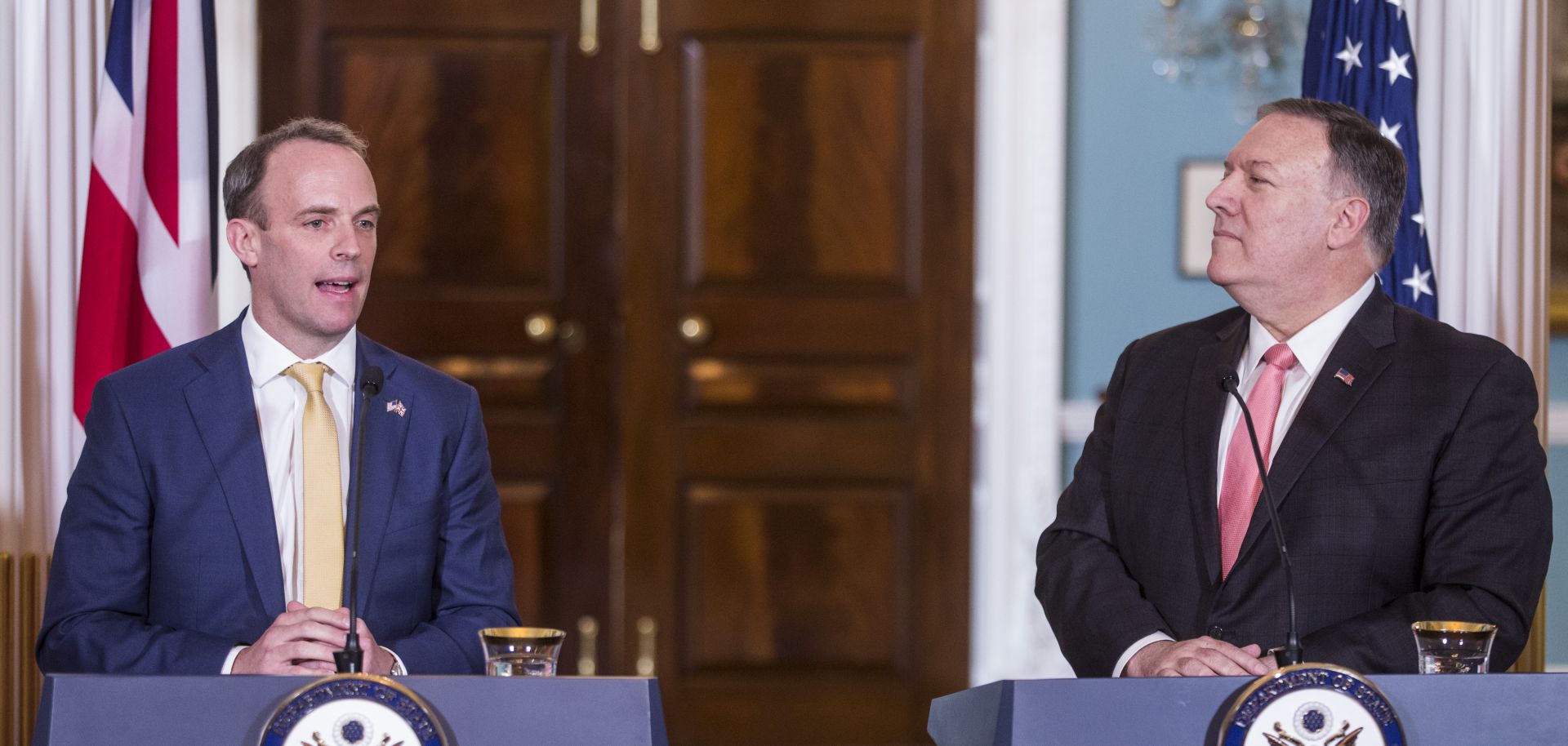COLUMNS
Europe and the U.S. Find Themselves in a 'Transatlantic Stretch' Over Policy

Aug 8, 2019 | 09:00 GMT

British Foreign Secretary Dominic Raab speaks with U.S. Secretary of State Mike Pompeo. As the global great power competition intensifies, the interests of individual Western states will increasingly diverge, threatening the West's ability to present a unified front on certain issues.
(ZACH GIBSON/Getty Images)
Highlights
- Intensifying great power competition is increasing the number of disagreements between the United States and Europe, despite their overall alignment on global affairs.
- This friction is manageable; while their interests may diverge on certain issues, the transatlantic relationship is resilient, embedded in political, economic and military realities.
- However, the relationship can only stretch so much, and the continued escalation of global competition will put their friendship to the test.
Subscribe Now
SubscribeAlready have an account?
